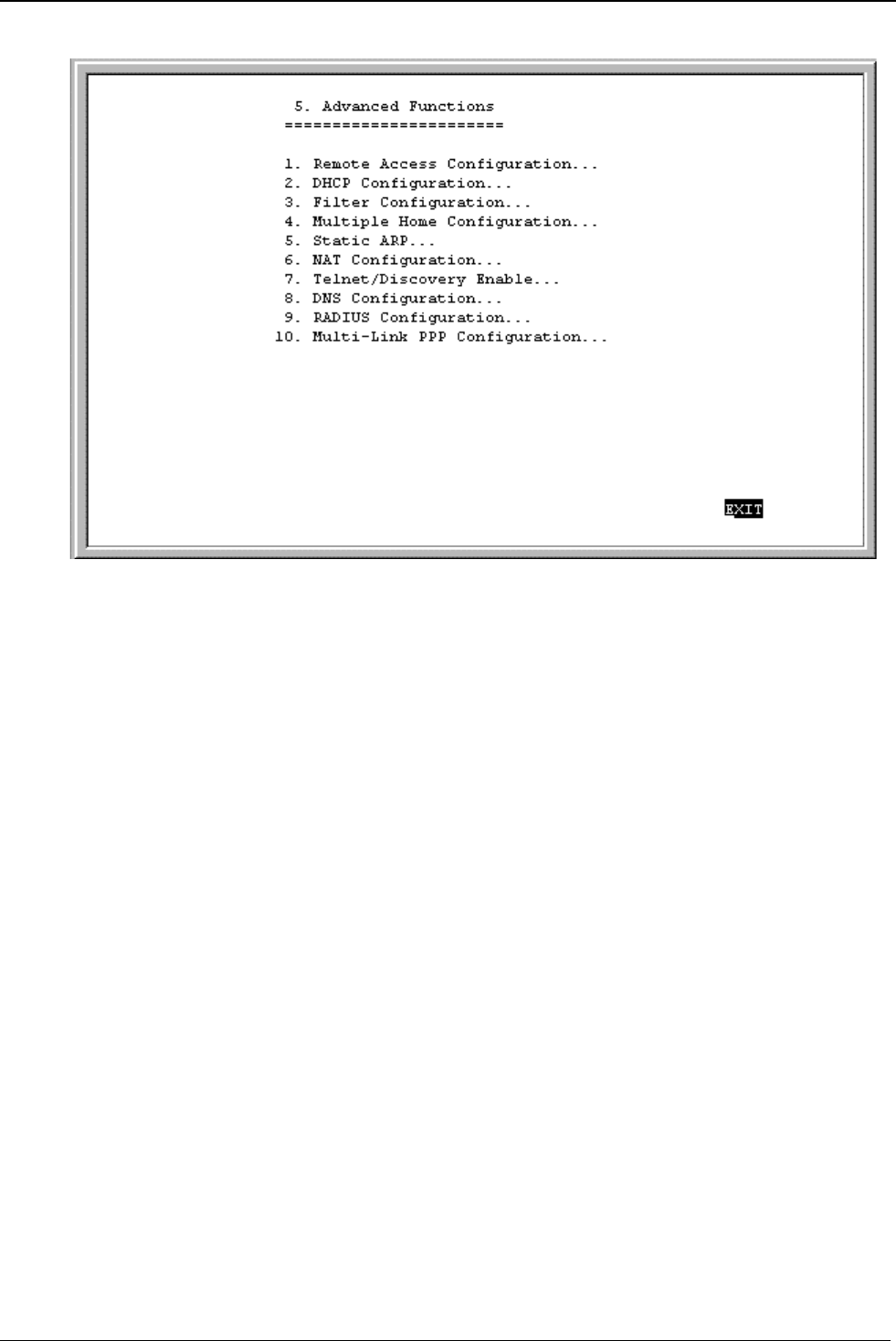
DI-1162/DI-1162M Remote Access Router
44
Remote Access Configuration
The Remote Access Configuration menu is used to set up the router for dial-in and dial-out connections through
modems and/or ISDN devices attached to the WAN ports. The two B channels on the ISDN line or two modems,
one connected to each WAN port, can support two independent remote connections or be banded together using
Multi-link PPP to implement Bandwidth on Demand (configured separately in the
PPP Configuration
menu, the
last item in the
Advanced Functions
window).
Remote Operation Overview
The DI-1162/DI-1162M is very flexible and can be configured for a variety of remote connections. Since
configuring the router can be quite complex - depending on the number and type of remote connection(s) you wish
to implement – we have described some of the basic functions and procedures below.
Dial-In User Connections
Dial-in users are defined as a single user on a computer, such as a person working at home, who dials into the
office to use network resources. In almost all cases, a Dial-In User Profile needs to be set up for each user who will
dial in to the router so the router can tailor the connection for each user. Once this is done, the remote user will be
able to use network resources as if he were connected locally. When the user dials into the DI-1162/DI-1162M, the
call comes into the WAN port and after answering the phone, the DI-1162/DI-1162M:
1.
Identifies the Username and Password using the authentication protocol defined in the
Interface
Configuration!WAN
submenu. The dial-in user is not prompted for this information, but must enter it into
his dialing software before dialing.
2.
Checks the Username and Password against those defined in the Dial-In User Profiles and Remote Network
Profiles.
3.
Assuming a matching Dial-In User Profile is found, the router may configure the IP address of the remote
station (as defined in the Dial-In User Profile).
4.
Configures a dial-in Interface (a virtual circuit) to handle the connection.
5.
Establishes the connection.


















